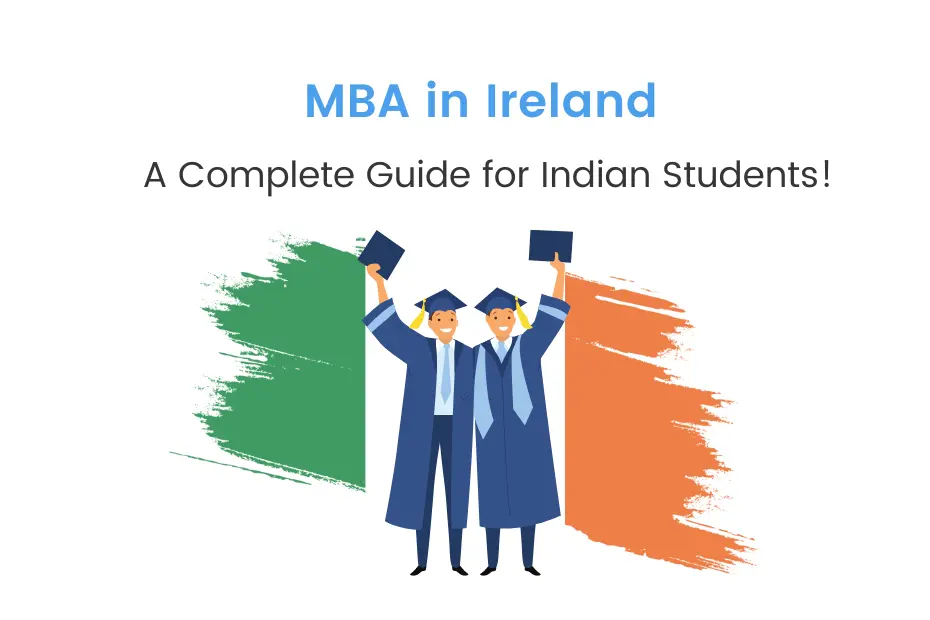
Advantages of Pursuing an MBA in Ireland
Unleashing Your Business Potential: The Journey of Pursuing an MBA in Ireland offers numerous advantages that make it a compelling choice for ambitious individuals: Renowned Universities and Quality Education Ireland is home to prestigious universities that offer top-notch business education. Institutions such as Trinity College Dublin, University College Dublin, and University College Cork are globally recognized for their academic excellence and research contributions. Pursuing an MBA in Ireland provides access to world-class faculty, cutting-edge resources, and a curriculum that blends theory with practical insights. The quality education ensures that students develop a strong foundation of business knowledge and skills. Dynamic Business Environment and Global Connectivity Ireland has established itself as a global hub for technology, finance, pharmaceuticals, and innovation. The country attracts multinational companies, startups, and entrepreneurs from around the world, creating a dynamic business ecosystem. Pursuing an MBA in Ireland allows students to tap into this thriving environment, providing ample networking opportunities, internships, and exposure to real-world business challenges. The country’s strong connections with global industries and its strategic location in Europe enhance career prospects and global business connections. Entrepreneurial Culture and Innovation
Ireland has a rich entrepreneurial culture, with a supportive ecosystem for startups and innovation. The country fosters an environment that encourages creativity, risk-taking, and entrepreneurial ventures. Studying for an MBA in Ireland exposes students to this culture of innovation, equipping them with the mindset and skills necessary to launch their own businesses or contribute to the growth of existing enterprises. The close collaboration between academia, industry, and government ensures that students have access to resources and mentorship for their entrepreneurial pursuits.
Networking Opportunities and Industry Connections
Ireland provides abundant networking opportunities for MBA students. The country’s close-knit business community encourages collaboration and knowledge-sharing. Many universities in Ireland have strong ties with industry leaders, offering guest lectures, industry visits, and networking events. These connections provide students with valuable insights, mentorship, and potential career opportunities. Building a strong professional network in Ireland can significantly enhance post-MBA career prospects both locally and internationally.
Post-Study Work Opportunities
Ireland offers favorable post-study work opportunities for international students. Upon completing their MBA, students can avail of the Third Level Graduate Scheme, which allows them to stay in Ireland for up to two years to seek employment or start their own businesses. This provides a valuable window of opportunity to gain work experience, explore career options, and contribute to the Irish business landscape.
Entrepreneurial Culture and Innovation
Ireland has a rich entrepreneurial culture, with a supportive ecosystem for startups and innovation. The country fosters an environment that encourages creativity, risk-taking, and entrepreneurial ventures. Studying for an MBA in Ireland exposes students to this culture of innovation, equipping them with the mindset and skills necessary to launch their own businesses or contribute to the growth of existing enterprises. The close collaboration between academia, industry, and government ensures that students have access to resources and mentorship for their entrepreneurial pursuits.
Networking Opportunities and Industry Connections
Ireland provides abundant networking opportunities for MBA students. The country’s close-knit business community encourages collaboration and knowledge-sharing. Many universities in Ireland have strong ties with industry leaders, offering guest lectures, industry visits, and networking events. These connections provide students with valuable insights, mentorship, and potential career opportunities. Building a strong professional network in Ireland can significantly enhance post-MBA career prospects both locally and internationally.
Post-Study Work Opportunities
Ireland offers favorable post-study work opportunities for international students. Upon completing their MBA, students can avail of the Third Level Graduate Scheme, which allows them to stay in Ireland for up to two years to seek employment or start their own businesses. This provides a valuable window of opportunity to gain work experience, explore career options, and contribute to the Irish business landscape.
Top Universities for Pursuing an MBA in Ireland
When it comes to Unleashing Your Business Potential: The Journey of Pursuing an MBA in Ireland, you have a range of esteemed universities to choose from, each offering unique advantages:| University | Specializations Offered |
|---|---|
| Trinity College Dublin Business School | – Innovation and Entrepreneurship |
| – International Management | |
| – Strategic Management | |
| UCD Michael Smurfit Graduate Business School | – Leadership and Organizational Behavior |
| – Marketing Strategy | |
| – Global Business | |
| Dublin City University Business School | – Technology and Innovation Management |
| – Financial Management | |
| – International Business | |
| University College Cork, Cork University Business School | – Sustainable Business Practices |
| – Business Analytics | |
| – Project Management | |
| National University of Ireland, Galway | – Human Resource Management |
| – Supply Chain and Operations Management | |
| – Entrepreneurship and New Venture Creation |



